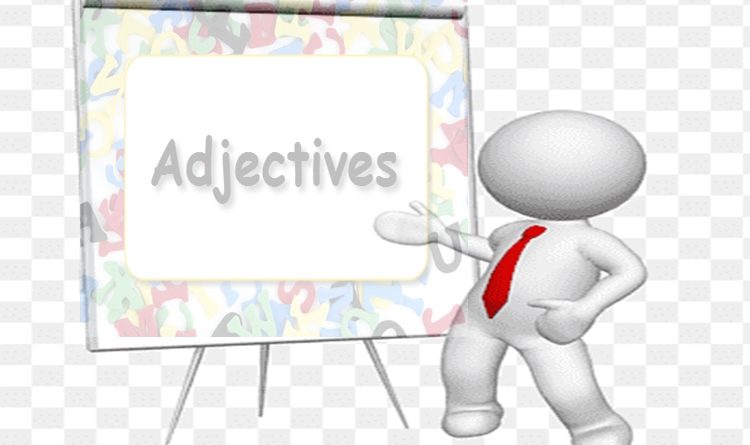ADJECTIVE
Adjective ( বিশেষণ ) : যে Word দ্বারা Noun বা Pronoun এর দোষ, গুণ, অবস্থা, পরিমান ও সংখ্যা বুঝায় তাকে Adjective বলে । যেমন : 1. She is a beautiful girl. 2. My Shirt is green. 3. You have three pens. 4. Belal is ill.
- Give me that blue water bottle.
- Say the same thing twice over.
- This time I won’t fail you.
- I want those gorgeous marbles.
- I cannot give you money at this moment.
3. Distributive Adjective: Distributive adjectives show that the things and persons are counted collectively. They refer to members of a group as individuals. Distributive adjectives একাধিক ব্যক্তি বা বস্তুর প্রক্যেককে নির্দেশ করে।
List of Distributive adjectives: each, every, either, neither, any, one, both
For Example:
Every man is potential.
I shall support neither party.
3. Pronominal Adjective: Pronoun যখন কোন Noun এর পূর্বে বসে adjective এর মতকাজ করে।
Pronominal adjectives that may be used as pronouns.
For Example: this, that, these, those, former, latter, both, same, you, yonder, all, any, another, certain, divers, enough, few, little, many much, no, one, own, other, several, some, sundry, which, whichever, whichsover, what, whatever, what, whatever, whatsover, his, her, my, our, yours, its, their, whose etc.
For Example:
- This pen is mine.
- Both players are good.
- Which pen have you bought?
- What pictures are these?
- These horses are larger than those.
4. Interrogative Adjective: “Interrogative” means to question. Interrogative adjectives that modify nouns when there is a question about which one, what kind or how many.”
Interrogative Pronoun (Whose, Which, What) যখন Noun এর আগে বসে প্রশ্ন করে।
For Example:
- Which house…………
- What dessert ………..
- Whose chair …………
** Which colour do you like best?
*** Which car is yours? (Interrogative Pronoun)
*** Which is yours? (Pronoun)
5. Relative Adjective: What, Which, Whom, Whose, Whichever, Whatever, etc যখন বাক্যের মধ্যবর্তী Noun এর আগে বসে adjective এর মতকাজ করে।
For Example:
- Do you know what languages she speaks?
- Saiful asked me which pen I liked.
- We’ll have to say in whatever hotel we can find.
- Whichever team wins, he’ll be a happy man.
6. Emphasizing Adjectives: Emphasizing adjectives are words that are used to emphasize nouns. Very, Own শব্দদ্বয় জোরসূচক Emphasizing Adjectives হিসেবে প্রয়োগ হয়।
For Example:
- Perfect gentleman
- Complete solution
- Positive attitude
7. Possessive Adjective: The possessive adjectives are my, your, his, her, its, our, their, owns, it.
For Example:
- This is her/my/his pen.
- She likes your hat.
- The child cried for its mother.
More Adjectives:
i. Qualitative Adjectives: These adjectives identify the qualities which someone or something has.
For Example:
- Wise decision
- Bright morning
- Nice idea
- Bad weather
ii. Classifying Adjectives : These identify someone or something as a member of a class.
For Example:
- Financial Help
- Daily Newspaper
- Absolute majority
Some adjectives could be both classifying and qualitative.
iii. Colour Adjectives: It indicates the colour of something.
For example:
- White paper
- Blue shirt
- Green field
- Black rose
iv. Adjective of Quantity:
For Example: any, half, whole, huge, little, etc
v. – ing adjectives: These adjectives are normally qualitative adjectives. The other main group of ‘ing adjectives’ are used to describe a process or state that continues over a period of time.
Example:
- A rolling stone gathers no moss.
- In the last ten years there has been an alarming increase in the average temperature.
- This has caused devastating effects in plantation.
- A surprising number of people are experiencing difficulties with their firming.
- In Bangladesh there are convincing examples of coping with the problems of draughts.
- Challenging initiatives are to be taken soon to address the threatening impact of the high temperature.
- The rising looks inspiring.
vi. – ed Adjectives: Have the same from as the past participle of a verb others are formed by adding – ed to a noun.
For Example:
- a burnt child
- a frightened person
- an edited copy
- a spoilt child
- devoted student
vii. Irregular Adjectives: Good, well, evil, bad, ill, much, many, old, high. near, far, late, hind, in, out, after, over, under, neither, and so on.
SEQUENCE OF ADJECTIVES
NUMBER : Three
OPINION : Beautiful
SIZE : Small
AGE : Old
SHAPE : Rectangular
COLOUR : Brown
ORIGIN : Indian
MATERIAL : Wooden
PURPOSE : Study

